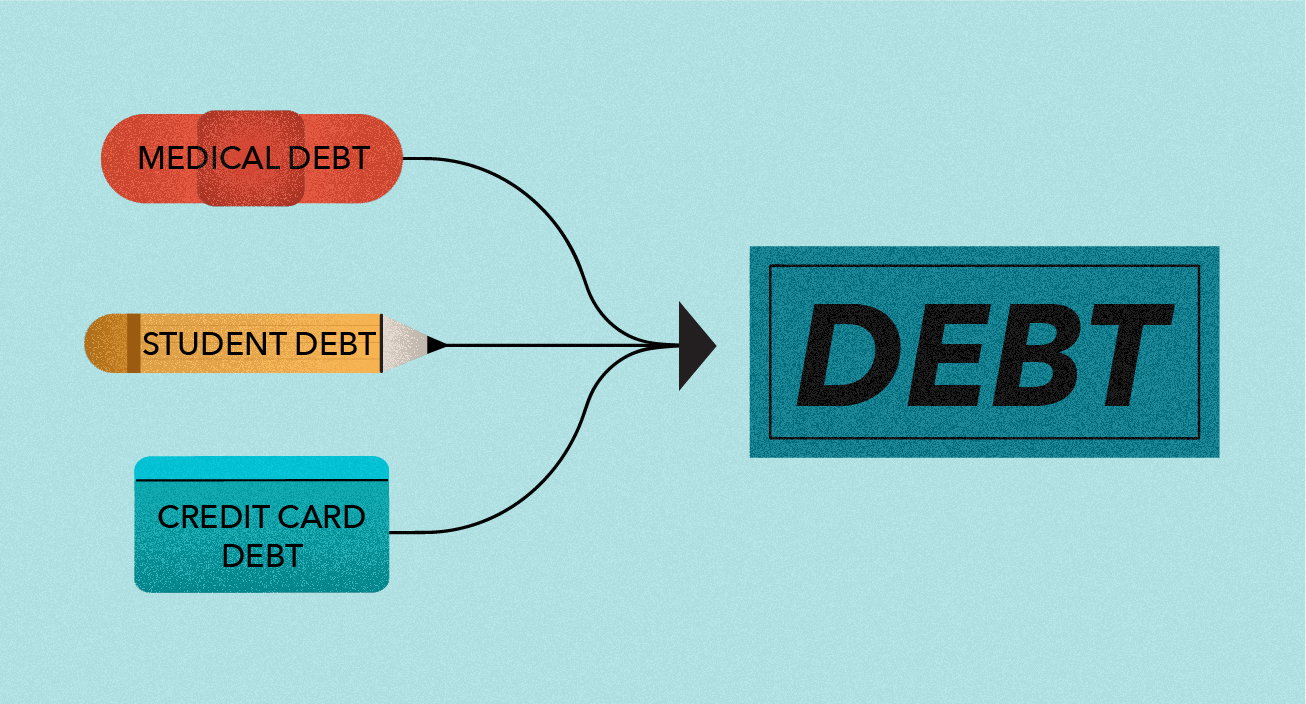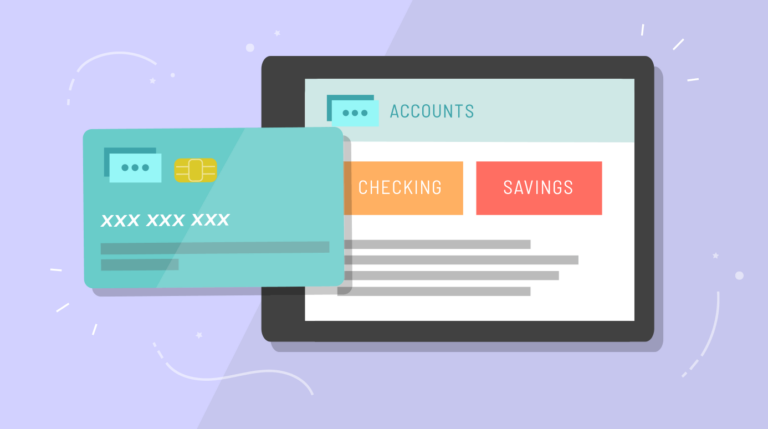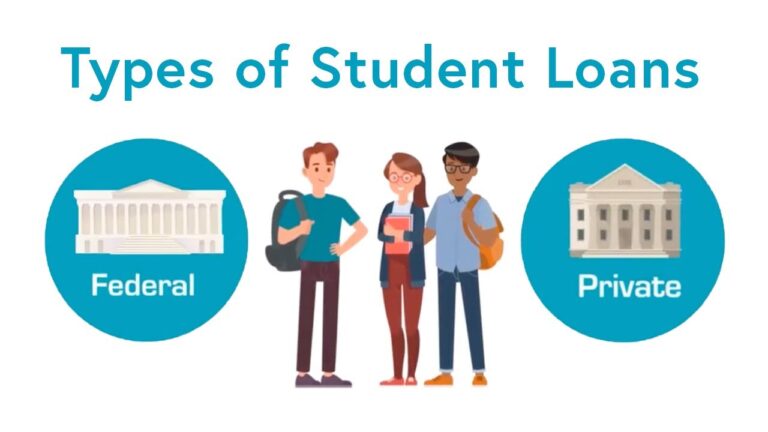Factors to Consider Before Opting for Debt Consolidation
When you have many debts, taking another loan may sound like an unwise idea. However, this may be your recipe out of the debt trap. This is where debt consolidation comes into play. It involves taking a new loan to pay off your old debts. The consolidated new debt usually comes with reduced interest rate. Consolidated loans are not available to everything and there are conditions that one must meet to qualify for loan consolidation. You can take a consolidated loan to pay off multiple unsecured loans like personal loans, credit cards, and other borrowings from private lenders.
Business owners use debt consolidation to free up cashflow and ease their overall payments. You can also use the loan to prolong the loan terms and reduce the interest rates charged on other loans. Businesses also use debt consolidation to finance their day to day business operations.
What is Debt Consolidation?
Debt consolidation is the process of taking out one loan to pay off multiple debts. This usually results in a lower interest rate and smaller monthly payments. It can also help you get out of debt faster.
There are two main types of debt consolidation loans
Secured Consolidation Loans
Secured loans are backed by collateral, such as a house or car. This means the lender can take your property if you can’t repay the loan. When you apply for a secured consolidation loan, the lender will want to know the assets you plan to use to secure the loan.
The lender then places a lien on the pledged asset until the loan is fully repaired. If the borrower defaults on the loan, the lender can take over the asset or collateral and sell it to recover the loan amount plus any accrued interest.
Unsecured Consolidation Loan
Unsecured loans are not backed by collateral. They tend to have higher interest rates but can be easier to qualify for. The lender will consider your credit history and income when you apply for an unsecured consolidation loan.
If you have a good credit score, you may be able to qualify for a 0% interest rate on an unsecured consolidation loan. This means you would only be responsible for paying back the principal of the loan.
How Does Debt Consolidation Work?
There are two main ways to consolidate debt: with a loan or with a balance transfer credit card.
Debt Consolidation Loan
With a debt consolidation loan, you take out a new loan and use the money to pay off your existing debts. The new loan should have a lower interest rate than your current debts, which will save you money on interest and help you pay off your debt faster.
You’ll need to qualify for the new loan, which may be difficult if your credit score has declined since you took out your original loans.
Balance Transfer Credit Card
With a balance transfer credit card, you transfer the balances of your existing credit cards to a new credit card with a lower interest rate. This can help you save on interest and pay off your debt faster.
However, you’ll need to be careful with balance transfer credit cards. Some have introductory rates that eventually expire, leaving you with a higher interest rate than you started with. And, if you don’t pay off your balance before the intro period ends, you’ll be stuck paying interest on the entire balance.
Factors to Consider Before Opting for Debt Consolidation
Before you consolidate your debt, there are a few factors you should consider:
Your Credit Score
If your credit score has declined since you took out your original loans, it may be difficult to qualify for a consolidation loan with a lower interest rate. This could end up costing you more in the long run.
Your Debt-to-Income Ratio
Your debt-to-income (DTI) ratio is the percentage of your monthly income that goes towards debt payments. To calculate your DTI, add up all of your monthly debt payments and divide them by your gross monthly income.
For example, if you have a monthly mortgage payment of $1,000 and monthly credit card payments of $500, your DTI would be 50%. Most lenders prefer to see a DTI ratio of 40% or less.
If your DTI ratio is high, you may want to consider ways to lower it before consolidating your debt. This could include making more money or finding ways to reduce your monthly expenses.
The Interest Rate on Your consolidation Loan
One of the main reasons people consolidate their debt is to get a lower interest rate. But, if you don’t qualify for a low-interest consolidation loan, it may not be worth consolidating your debt.
To get the best interest rate on your consolidation loan, you’ll need a good credit score. If your credit score has declined since you took out your original loans, it may be difficult to get a low-interest rate.
Your Loan Term
The longer your loan term, the lower your monthly payments will be. But, you’ll also end up paying more in interest over the life of the loan.
If you have a high interest rate, you may want to consider a shorter loan term so you can pay off your debt faster. But, if you have a low interest rate, you may want to consider a longer loan term to keep your monthly payments affordable.
What are the Benefits of Debt Consolidation?
There are several benefits of debt consolidation, including:
Lower Interest Rates
One of the main benefits of debt consolidation is lower interest rates. When you consolidate your debt, you may qualify for a lower interest rate on your consolidation loan than you’re currently paying on your existing debts. This can save you money on interest and help you pay off your debt faster.
Simplified Debt Repayment
Another benefit of debt consolidation is simplified debt repayment. When you have multiple debts, it can be difficult to keep track of all the different due dates and minimum payments. But, with a consolidation loan, you’ll only have to make one monthly payment. This can make it easier to stay on top of your debt repayment and avoid late fees.
Potentially Lower Monthly Payments
consolidation loan may also lower your monthly payments. This is because, with a consolidation loan, you may be able to qualify for a longer loan term. This can help keep your monthly payments affordable.
What are the Risks of Debt Consolidation?
There are also some risks to consolidating your debt, including:
You May End Up Paying More in Interest
If you consolidate your debt with a high-interest loan, you may end up paying more in interest over the life of the loan. This is because you’ll be extending the repayment period and accruing more interest.
Your Credit Score May Suffer
If you consolidate your debt with a new loan, it could have a negative effect on your credit score. This is because you’ll be taking out a new loan, which will add to your overall debt load.
You May Miss Out on Rewards
If you have rewards credit cards, you may miss out on rewards if you consolidate your debt onto a new card. This is because most rewards credit cards have minimum spending requirements that you may not meet with a consolidation loan.
You May Not Qualify for a Loan
If you have bad credit, you may not qualify for a consolidation loan. This is because lenders are typically only willing to give consolidation loans to borrowers with good or excellent credit.
You May Have to Pledge Collateral
If you consolidate your debt with a secured loan, you may have to pledge collateral. This means you could lose your home or car if you can’t repay the loan.
Should You Consolidate Your Debt?
Whether or not you should consolidate your debt depends on your individual situation. You’ll need to consider factors like your credit score, interest rates, and monthly payments to decide if consolidating your debt is the right move for you.
If you’re struggling to make your monthly payments, consolidating your debt could help you get a lower interest rate and simplify your debt repayment. But, if you have bad credit, you may not qualify for a consolidation loan.
You should also consider the risks of consolidating your debt, like extended repayment terms and missing out on rewards. If you’re unsure whether consolidating your debt is right for you, you can speak to a financial advisor to get expert advice.
Best Debt Consolidation Loan Companies in the US
If you’re considering consolidating your debt, you may be wondering where to get a consolidation loan. There are many different lenders that offer consolidation loans, including banks, credit unions, and online lenders.
When choosing a lender for your consolidation loan, it’s important to compare interest rates, fees, and loan terms to find the best deal. You should also consider the lender’s reputation and financial stability.
To help you compare consolidation loans, we’ve compiled a list of the best debt consolidation loan companies in the US.
SoFi: Best Overall
SoFi is an online lender that offers personal loans for debt consolidation. SoFi offers competitive interest rates and has no fees. You can also choose your loan term, which can range from 2 to 7 years.
To qualify for a loan from SoFi, you’ll need a credit score of at least 680. You’ll also need to have a steady income and be a US citizen or permanent resident.
Pros:
- No fees
- Competitive interest rates
- Flexible loan terms
Cons:
- Must have good credit to qualify
Marcus by Goldman Sachs: Best for No fees
Marcus by Goldman Sachs is a bank that offers personal loans for debt consolidation. Marcus doesn’t charge any fees, and offers competitive interest rates. Loan terms range from 36 to 72 months.
To qualify for a Marcus loan, you’ll need a credit score of at least 620. You must also have a steady income and be a US citizen or permanent resident.
Pros:
- No fees
- Competitive interest rates
- Flexible loan terms
Cons:
- Must have good credit to qualify
Prosper: Best for Good Credit
Prosper is an online lender that offers personal loans for debt consolidation. Prosper offers competitive interest rates, with rates starting at 5.99%. You can also choose your loan term, which can range from 3 to 5 years.
To qualify for a Prosper loan, you’ll need a credit score of at least 640. You must also have a steady income and be a US citizen or permanent resident.
Pros:
- Competitive interest rates
- Flexible loan terms
Cons:
- Must have good credit to qualify
Avant: Best for Bad Credit
Avant is an online lender that offers personal loans for debt consolidation. While Avant doesn’t have the lowest interest rates, it does offer loans to borrowers with bad credit. Loan terms range from 24 to 60 months.
To qualify for an Avant loan, you’ll need a credit score of at least 580. You must also have a steady income and be a US citizen or permanent resident.
Pros:
- Loans available for bad credit
- Flexible loan terms
Cons:
- Higher interest rates than some lenders
LightStream: Best for Low Interest Rates
LightStream is an online lender that offers personal loans for debt consolidation. LightStream offers very low interest rates, starting at 2.49%. You can also choose your loan term, which can range from 24 to 144 months.
To qualify for a LightStream loan, you’ll need a credit score of at least 660. You must also have a steady income and be a US citizen or permanent resident.
Pros:
- Very low interest rates
- Flexible loan terms
Cons:
- Must have good credit to qualify
PenFed Credit Union: Best for Credit Union Members
PenFed Credit Union is a credit union that offers personal loans for debt consolidation. PenFed offers competitive interest rates and has no fees. Loan terms range from 36 to 60 months.
To qualify for a loan from PenFed, you must be a member of the credit union. You’ll also need a credit score of at least 660. You must also have a steady income and be a US citizen or permanent resident.
Pros:
- No fees
- Competitive interest rates
- Flexible loan terms
Cons:
- Must be a credit union member to qualify
Wells Fargo: Best for Bank Customers
Wells Fargo is a bank that offers personal loans for debt consolidation. Wells Fargo offers competitive interest rates and has no fees. Loan terms range from 12 to 84 months.
To qualify for a loan from Wells Fargo, you must have an account with the bank. You’ll also need a credit score of at least 660. You must also have a steady income and be a US citizen or permanent resident.
Pros:
- No fees
- Competitive interest rates
- Flexible loan term
Cons:
- Must have an account with the bank to qualify
Citizens Bank: Best for Co-Signers
Citizens Bank is a bank that offers personal loans for debt consolidation. Citizens Bank offers competitive interest rates and has no fees. Loan terms range from 12 to 84 months. You can also apply with a co-signer to increase your chances of approval.
To qualify for a loan from Citizens Bank, you must have a credit score of at least 660. You must also have a steady income and be a US citizen or permanent resident.
Pros:
- No fees
- Competitive interest rates
- Flexible loan terms
- Can apply with a co-signer
Cons:
- Must have good credit to qualify
Wealthfront: Best for Investments
Wealthfront is an investment company that offers personal loans for debt consolidation. Wealthfront offers competitive interest rates and has no fees. Loan terms range from 24 to 60 months.
To qualify for a loan from Wealthfront, you must have a credit score of at least 660. You must also have a steady income and be a US citizen or permanent resident.
Pros:
- No fees
- Competitive interest rates
- Flexible loan terms
Cons:
- Must have good credit to qualify
Bottom Line
Debt consolidation can be a good way to get a lower interest rate and simplify your debt repayment. But, there are also some risks to consolidating your debt. You should consider these risks before you decide to consolidate your debts.
If you’re thinking about consolidating your debt, compare personal loans to find the best loan for you.






